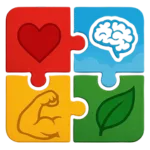When it comes to understanding people—whether for hiring, leadership, or personal growth—most organisations are using outdated tools.
Traditional psychometric instruments like IQ tests and academic-based assessments still dominate the landscape. But while they offer insights into what a person knows or how fast they process information, they miss the deeper question:
What is this person naturally wired to do?
That’s where the Natural Ability Explorer (NAE) changes the game.
Traditional Assessments: Measuring the Mind from the Outside In
For decades, instruments like the WAIS, Stanford-Binet, and WISC have been the go-to for measuring intelligence. These tests assess verbal comprehension, memory, processing speed, and numerical reasoning. They’re widely respected, but fundamentally diagnostic. They’re designed to evaluate:
- General intelligence (IQ)
- Academic placement or cognitive deficit
- Educational intervention needs
Useful? Yes—for diagnosis.
Relevant to leadership, alignment, or career direction? Not quite.
NAE: A Deeper, More Personal Insight
The Natural Ability Explorer doesn’t test what you’ve learned.
It measures how your brain naturally functions—regardless of your background, education, or environment.
Here’s what sets it apart:
| Criteria | Traditional Tests (IQ, Cognitive) | Natural Ability Explorer (NAE) |
| Purpose | Diagnosis, academic planning | Self-awareness, career and leadership alignment |
| Measures | Intelligence, memory, reasoning | Innate aptitudes (spatial, design memory, pitch, ideation, etc.) |
| Format | Language-heavy, test-like | Performance-based, timed, hands-on |
| Bias Risk | Influenced by culture, education, language | Minimised through neutral, practical tasks |
| Longevity | May shift over time | Based on hardwired abilities, stable for life |
| Application | School support, IQ scoring | Personal growth, team culture, leadership development |
Aptitude vs Intelligence: What You Need to Know
Where intelligence tests tell you how smart someone is, aptitude assessments like NAE tell you how someone is smart.
- Some thrive in fast-paced, ideation-heavy roles.
- Others are wired for spatial design or musical pitch.
- Some leaders process visually, others conceptually or linguistically.
Knowing this is the difference between plugging people into roles—and placing them where they’ll flourish.
Why This Matters for Organisations
Self-awareness isn’t a soft skill—it’s a strategic asset.
Using NAE across a team or organisation helps you:
- Build high-performing teams by aligning natural strengths
- Improve communication by understanding cognitive diversity
- Create leadership pathways based on how individuals actually think
- Reduce burnout by matching people to roles that suit their wiring
Inclusive by Design
Unlike traditional tests that often favour certain socio-economic or educational backgrounds, NAE reduces cultural and linguistic bias. It evaluates how you do a task, not what you already know about it.
This makes it powerful for diverse hiring, career equity, and uncovering hidden talent.
The Takeaway: Upgrade the Lens, Unlock the Potential
IQ tests had their era. But today’s world demands more than a number.
It demands insight. Alignment. Depth.
The Natural Ability Explorer is more than a test. It’s a mirror.
A map. A method to understand what someone was built to do—so they can do it better, for longer, with more purpose.
